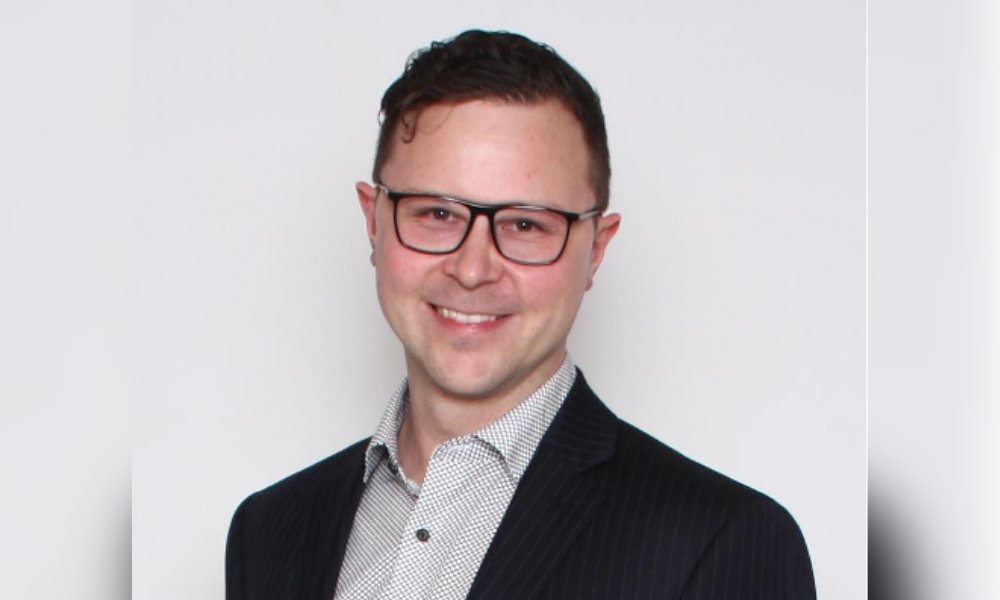For co-founder of Indigenous Finance Collective, grassroots education is key to undoing centuries of economic harm

With National Indigenous History Month in full swing, advocates and stakeholders across the country are coming together in solidarity to advance the continuing cause of reconciliation. Among them is a young group of financial services professionals who want to spark a radical change.
“There really is a need for diversity of opinions when it comes to crafting solutions for the Indigenous community, and the business community,” says Devan Legare, portfolio manager at Cardinal Point Wealth Management, who self-identifies as Indigenous.
He’s the co-founder of the Indigenous Finance Collective (IFC), a volunteer group of financial services professionals who are proud of their Indigenous descent and want to give back to the community.
Legare, along with Michael Carlson – an Ontario-based planner whose practice is focused solely on working with Indigenous people – started the IFC just over a year ago. From a nuclear group of five members, the collective has grown to include around 30 people thanks largely to Carlson’s efforts to search for and recruit new partners.
“As we say in our mission and vision statement, Indigenous peoples in Canada have suffered centuries of economic harms due to colonialism,” Legare says. “We believe by connecting Indigenous people who are working in the financial sector, we can create wider systemic change, to reduce or undo those economic harms.”
In search of advocates and storytellers
Geographically, the IFC includes representatives from BC, Alberta, Saskatchewan, Manitoba, and Ontario; professionally, they have expertise in various areas of planning including pensions, insurance, and small-business planning. Once a month, the group gets together to share stories and brainstorm on where they should focus their energies.
“First, there’s the networking aspect,” Legare said. “There aren’t very many Indigenous people in Canada, full stop, and that circle becomes even smaller when you zoom in on those involved in financial services. So we want to create a platform where we could make the connections necessary to not just succeed in business for ourselves, but also spark necessary change.”
The next focus area is education. Legare points to the success of Theodora Warrior, a Blackfoot member of the Piikani Nation in Southern Alberta. She established a workshop series called Money Moccasins, which is based on a program she herself used to escape a vicious cycle of homelessness, unemployment, and debt.
“The program really focuses on Indigenous financial literacy … taught by Indigenous people to Indigenous people,” Legare enthuses. “I think she had about 150 people go through the program last year, and it tells the story of financial literacy in a way that resonates with Indigenous values and experience.”
While there’s an increasing amount of money flowing to the Indigenous segment of the wealth market, he says it can be a challenging experience for most in the community who haven’t had much experience with money.
“If you've never really had money, how do you integrate that into your life in a way that's helpful and healthy, and takes care of the next generation after that?” he says. “Starting with grassroots, fundamental financial literacy is something that's so important, and it really is a story best told by someone who's lived that life.”
Sowing seeds of change
Since inception, the IFC has reached out to agencies across varying levels of government, as well as not-for-profit groups also advocating for financial literacy. They’ve also made contact with various financial planning organizations across Canada, including the Financial Planning Association of Canada and Advocis. The aim of those exploratory conversations: figuring out how to best align IFC’s efforts and objectives with those other stakeholders.
“I feel like we’re just at the starting line. A lot of groups have approached us with concepts of funding,” Legare says. “We’re now trying to apply for not-for-profit status so we can start funding initiatives ourselves … We want to get more Theodora Warriors out there, to make sure there’s people connecting with communities and sharing the larger story of financial literacy.”
Over the next several months, he says the IFC hopes to put together a board and get approved for not-for-profit status. Aside from promoting grassroots financial literacy, Legare says the IFC is also working on developing a curriculum of Indigenous financial literacy for corporations and non-profits, whether it’s for hiring Indigenous people or for getting businesses started as an Indigenous person. Getting people from the communities they work with who are interested to join the financial services world, he adds, would be another big win.
“Up until now, it’s been a nice community and networking opportunity. But these first few months of us really trying to engage and be able to serve people and communities … that’s going to be impactful,” he says. “I think the membership is coming to recognize that we can be real changemakers here.”



